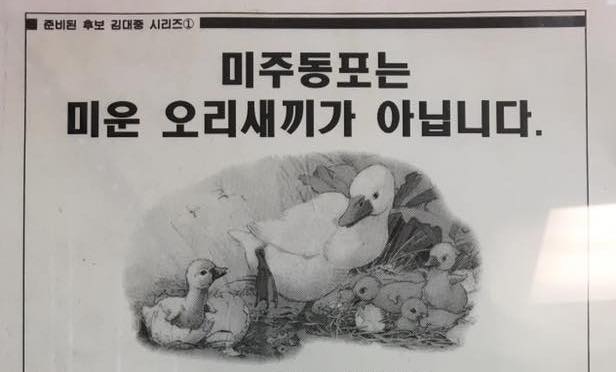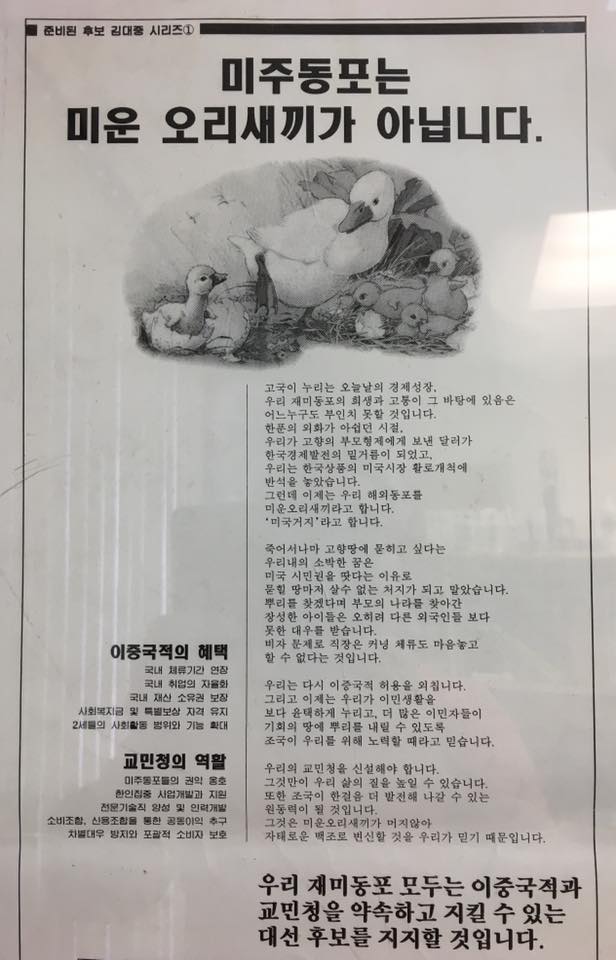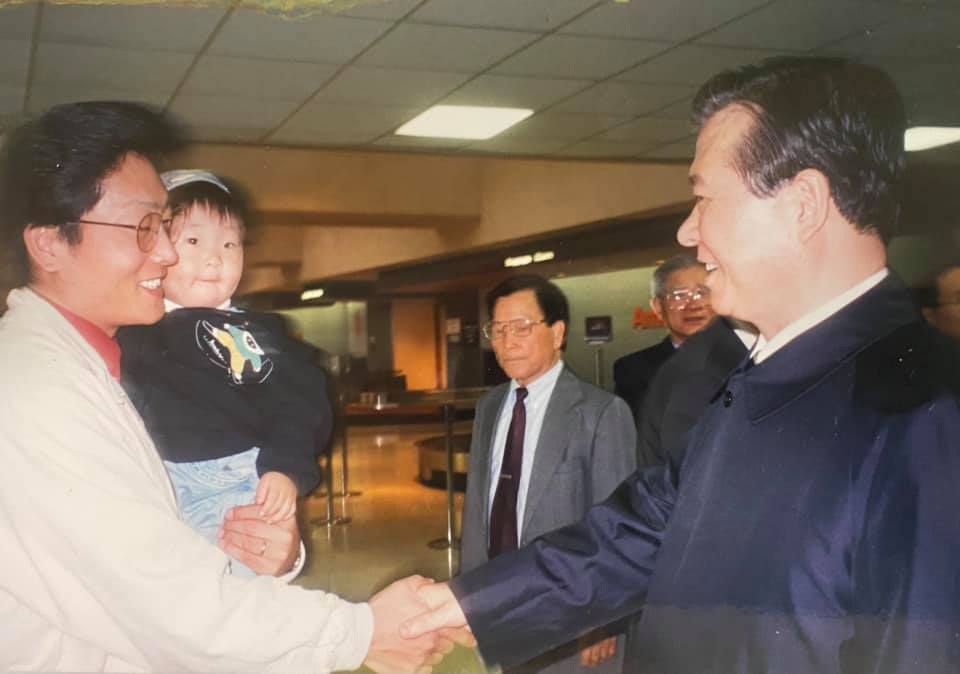Policy Centered on Business Associations (Part 1)

Policy Centered on Business Associations (Part 1)
The purpose of the Overseas Koreans Foundation was clear from the start:
to strengthen the self-reliance of Korean communities abroad by fostering business associations first—so that these associations could generate funds to support other Korean organizations.
Unfortunately, the very first executives and leaders of affiliated organizations did not fully grasp this vision. Instead, they steered the foundation toward a narrow focus on Korean-language education, drifting away from its original mission.
To be fair, this was not the fault of the appointed officers. The original vision and strategy had simply not been communicated to them properly.
Now, with the newly established Overseas Koreans Agency, it is time to return to the spirit and purpose that was originally intended.
President Kim Dae-jung: Putting Business Leaders at the Center of Overseas Korean Policy
Until 1997, Korea virtually had no comprehensive policy for overseas Koreans. It was in this context that Kim Dae-jung, then leader of the National Congress for New Politics, first pledged groundbreaking reforms: allowing dual citizenship and creating a dedicated “Overseas Koreans Agency.”
After becoming president, Kim fulfilled these promises by enacting the Overseas Koreans Foundation Act and the Special Act on the Legal Status of Overseas Koreans.
As a result, several reforms were introduced, including:
- Allowing dual citizenship for those over 65
- Introducing the domestic residence registration system
- Granting property ownership rights
These were not symbolic gestures, but concrete and practical reforms.
A Policy Centered on Business Leaders: The Clear Intent of the President
I can speak about the intent of this policy with confidence not simply because I observed it closely, but because I was directly involved in developing it.
At the time, Kim Dae-jung, then party leader, served as honorary chairman of the Korean Institute for Human Rights, where Dr. Young-jak Lee, a renowned statistician, served as director. I worked there as a volunteer planning secretary and was tasked with developing overseas Korean policy proposals for the 1997 presidential election.
The result was the adoption of a campaign pledge titled “Dual Citizenship and the Creation of an Overseas Koreans Agency.” This was later turned into a nationwide advertising campaign that ran in major newspapers across the United States.
must be centered on business leaders.

The advertisements clearly conveyed the intended mission of the new agency:
- Protecting the rights and interests of overseas Koreans
- Fostering industries concentrated in Korean communities
- Training and advancing skilled professionals
- Establishing cooperatives and credit unions
- Eliminating discrimination and strengthening consumer protection
It was evident that such an industry- and business-centered policy would provide real benefits to overseas Koreans and foster genuine growth and self-reliance. Without it, the agency risked becoming nothing more than a hollow bureaucracy—an ornamental institution serving political appointments rather than the community

A Missed Opportunity in the Past—and a New Chance Today
When the Overseas Koreans Foundation was launched, I was working as a journalist for a major broadcaster. Being in my early thirties, I felt too inexperienced to directly participate in its founding. Without anyone to carry forward the president’s original intent, the foundation was laid on shaky ground and strayed from its true purpose. I only realized much later how serious this deviation had been. To this day, I carry a sense of responsibility and guilt, feeling that I failed to uphold the president’s promise.
Over the past 25 years, I have tried, at least on a personal level, to keep the original spirit alive through my work in the beauty supply industry. I have worked from many angles to see that the vision might be realized through industry-based initiatives.
Yet, I also faced undeniable limitations. It was difficult to persuade first-generation industry leaders already burdened by the weight of practical realities. My individual efforts as a 1.5 generation Korean alone could not accomplish enough.
But today, at last, first-generation leaders who share this vision have come together. From the beauty supply industry to taekwondo, to the Korean American Chambers of Commerce, a united front has emerged. Together, we are building a platform where an industry-centered policy for overseas Koreans can finally take root in practice.
For me, this is deeply moving and fills me with hope.
👉 In the next part, I will explain in detail why overseas Korean policy.]
